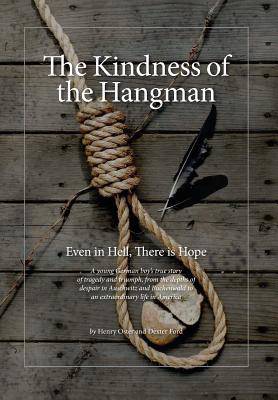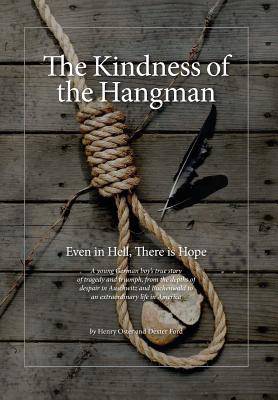
- Afhalen na 1 uur in een winkel met voorraad
- Gratis thuislevering in België
- Ruim aanbod met 7 miljoen producten
- Afhalen na 1 uur in een winkel met voorraad
- Gratis thuislevering in België
- Ruim aanbod met 7 miljoen producten
Omschrijving
The Kindness of the Hangman is the inspiring true story of a young German boy, Henry Oster, and his struggle for survival against Nazi persecution, slave labor, starvation and the threat of extermination.
Henry Oster was just five years old, a wide-eyed boy from the beautiful ancient city of Cologne, Germany, when Adolf Hitler took power in 1933. Even though Henry's father was a wounded, decorated German soldier in World War I, the Nazis' cruel obsession with Jews turned the Oster's lives into a spiral of persecution and desperation. Henry and his family were ostracized, vilified and brutalized.
They were torn from their home and deported to the infamous Lodz, Poland Ghetto, where desperate Jews were imprisoned on their way to the Nazi death camps. Henry struggled to keep himself and his family alive and together in a world where the slightest misstep would earn them a date with the Ghetto hangman. He worked crippling hours, scrounged and stole food, and hid his mother in a secret attic to avoid being captured in Nazi raids and shipped off to the killing camps in the Polish countryside.
A Gestapo deception finally pushed them onto a stifling, filth-ridden cattle car, on a ride to a place whose name has come to symbolize the worst of humanity: Auschwitz. As others around him succumbed to the gas chambers, beatings, starvation and disease, Henry Oster somehow found the strength to stay alive. He and 130 other boys were assigned to work in the Auschwitz stables, breeding horses for the Russian invasion of the German war effort. He was put in charge of Barbarossa, a magnificent stallion, and was forced to help in the violent process of breeding Barbarossa with the mares. He survived selections for the gas chambers, a firing squad, a death march through the killing Polish winter, a strafing attack by Allied fighter-bombers and the last murderous throes of the Nazi Reich.
As the Allied armies closed in on Berlin Henry was finally liberated, on the razor's edge of starvation, from the Buchenwald concentration camp by General George Patton's 3rd Army, among them sobbing African-American soldiers who understood the prejudice and injustice he had suffered for so many years. He was liberated alongside fellow teenager Elie Wiesel, author of the compelling, best-selling novel, Night, and winner of the Nobel Peace Prize. Of the 2,011 Jews who were rounded up by the Gestapo and deported from Cologne, Henry Oster is the only person still alive to tell their story. He was one of only 19 German-speaking Jewish boys to emerge alive from the concentration camps after the war.
Oster's struggles did not stop with his escape from the Nazis' persecution. After coming of age as a free young man in Paris he made his way to Los Angeles, arriving with no money, no English and no education. By pumping gas and fixing cars after school he worked his way through high school and UCLA, and became an influential and respected Professor of Optometry. At the age of 85 he was still seeing patients, helping the world to see. In 2011 Henry made a moving and triumphant return to Cologne, where he spoke before the Mayor, city officials, diplomats and Holocaust historians, and visited the Gunter Demnig art project of sidewalk plaques--"stumbling stones"--that memorialize his mother and father.
Now, at the age of 87, Henry Oster is just as vibrant and determined as ever to tell the story of one of the last few survivors of the Nazi death camps, and to caution students and audiences all over the world about the racism, fascism and politics of fear that gave rise to the Nazi nightmanre, and which are still alive and well in otherwise civilized societies today.
Specificaties
Betrokkenen
- Auteur(s):
- Uitgeverij:
Inhoud
- Aantal bladzijden:
- 216
- Taal:
- Engels
- Reeks:
- Reeksnummer:
- nr. 1
Eigenschappen
- Productcode (EAN):
- 9780578144450
- Verschijningsdatum:
- 1/09/2014
- Uitvoering:
- Hardcover
- Formaat:
- Genaaid
- Afmetingen:
- 152 mm x 229 mm
- Gewicht:
- 471 g

Alleen bij Standaard Boekhandel
Beoordelingen
We publiceren alleen reviews die voldoen aan de voorwaarden voor reviews. Bekijk onze voorwaarden voor reviews.












